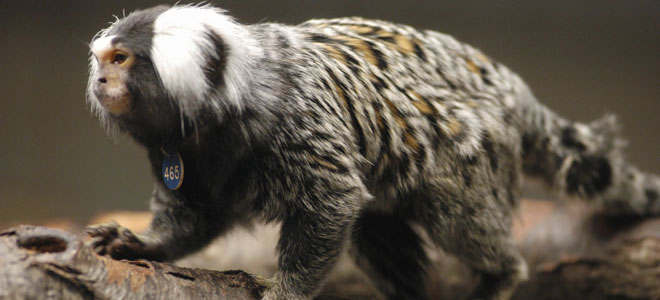
The Wisconsin National Primate Research Center (WNPRC) is one of seven federally supported National Primate Research Centers and the only one in the Midwest. More than 250 center scientists, through competitive grants, conduct research in primate biology with relevance to human and animal health.
Donate to the Wisconsin National Primate Research Center
Your support will help continue the tradition of excellence in teaching, research, and public service.
Make a GiftThe Primate Center is based in the University of Wisconsin-Madison Office of the Vice Chancellor for Research and Graduate Education. The Center has strong research and teaching links to the UW Schools or Colleges of Medicine, Letters and Science, Agriculture and Life Sciences, and Veterinary Medicine.
The mission of the Primate Center is to increase our understanding of basic primate biology and to improve human health and quality of life through research. To accomplish this, the WNPRC:
- Helps discover treatments, preventions and cures for human disease.
- Generates new knowledge of primate biology, from the molecular and whole animal levels to the understanding of primate ecosystems.
- Facilitates research progress by providing expertise, resources and training to scientists worldwide.
- Collects primate information and disseminates to the research community and to the public.
Robert W. Goy Lecture Series
Gifts to the Primate Center through the UW Foundation can also support the annual Robert W. Goy Lecture Series. This annual lecture features a prominent visiting scientist in behavior and reproductive neuroendocrinology.
Dr. Robert W. Goy, Ph.D., 1924-1999, was a professor of psychology at the University of Wisconsin-Madison and Director of the Wisconsin Regional Primate Research Center from 1971-1989. Dr Goy exemplified the best the University of Wisconsin-Madison has to offer – in research, teaching, mentoring and creative inspiration. Many of his students have become leaders in neurobiology, neuroendocrinology, behavioral endocrinology and primatology.
